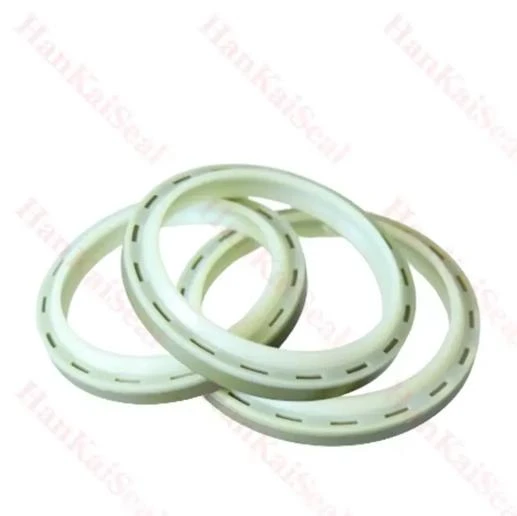ធ្នូ . 23, 2024 14:00 Back to list
Oil Seal for Wheel Hubs Essential for Efficient Vehicle Performance and Longevity
Understanding the Importance of Oil Seals in Wheel Hubs
Oil seals, also known as grease seals, play a crucial role in the functionality and longevity of wheel hubs in vehicles. These components are designed to prevent the leakage of lubrication and protect the internal elements of the hub from contaminants. Understanding their function, structure, and maintenance can help vehicle owners appreciate their importance and ensure optimal performance.
What is an Oil Seal?
An oil seal is a mechanical seal that fills the gap between a rotating shaft and its housing. It is typically made of rubber or a composite material that provides flexibility and resilience against wear. Oil seals are designed to keep lubricants in while keeping dirt, dust, and water out, ensuring the smooth operation of moving parts within the wheel hub assembly.
The Role of Oil Seals in Wheel Hubs
The primary function of an oil seal in a wheel hub is to maintain the integrity of the lubrication system. The wheel hub contains parts like the bearings and the axle, which require proper lubrication to reduce friction during operation. If the lubrication is compromised due to leaks, it can lead to increased wear and tear, overheating, and ultimately, failure of the hub assembly.
Additionally, the oil seal acts as a barrier against external contaminants, such as dirt and moisture. These foreign particles can cause significant damage to the bearings and other components if allowed to enter the hub. Therefore, the presence of a properly functioning oil seal is essential for the longevity of the wheel hub.
Structure of Oil Seals
Oil seals consist of several key components, including the outer casing, sealing lip, and spring. The outer casing is typically made of metal or polymer, providing structural integrity and allowing for easy installation within the hub assembly. The sealing lip is the heart of the oil seal, creating a dynamic sealing surface against the rotating shaft. It is designed to withstand high temperatures and resist wear over time. The spring inside the oil seal helps maintain a consistent pressure on the sealing lip, ensuring a tight fit against the shaft and reducing the chances of leakage.
Common Issues with Oil Seals
oil seal wheel hub

Despite their robust design, oil seals can wear out due to various factors, including age, high temperatures, and improper installation. A worn or damaged oil seal can lead to leaks, which can have severe consequences for the wheel hub and overall vehicle performance. Common signs of oil seal failure include grease stains around the wheel hub, irregular noises from the wheel area, and decreased lubrication efficiency, which can affect the handling and safety of the vehicle.
Maintenance Tips
To ensure the longevity of oil seals in wheel hubs, regular maintenance is essential. Here are some tips for vehicle owners
1. Regular Inspections Check for signs of oil leakage or contamination during routine vehicle maintenance. Early detection can prevent more significant issues down the line.
2. Proper Lubrication Ensure that the wheel hub is adequately lubricated according to the manufacturer’s specifications. Over-greasing or under-greasing can lead to oil seal failure.
3. Professional Installations If replacing oil seals, consider having a professional perform the installation. Proper alignment and fit are critical to the effectiveness of the seal.
4. Quality Components Always opt for high-quality oil seals from reputable manufacturers. Quality materials can withstand harsh conditions and provide better durability.
Conclusion
Oil seals are small yet vital components in wheel hubs, significantly impacting the vehicle's performance and safety. Understanding their role can help vehicle owners take the necessary steps to maintain them properly and extend the life of their wheel hub assemblies. Regular inspections, proper maintenance, and using quality components will ensure that the oil seals continue to perform effectively, keeping lubricants in and contaminants out. After all, a well-maintained vehicle is key to a safe and enjoyable driving experience.
-
Unlocking the Potential of Hydraulic Systems with Essential Sealing Solutions
NewsAug.06,2025
-
Unleash the Power of Your Hydraulic Systems with Our Premium Seal Kits
NewsAug.06,2025
-
Specialized Hydraulic Seal Kits for Breakers, Pistons, and Presses
NewsAug.06,2025
-
Revitalize Hydraulic Systems with Premium Repair and Seal Kits
NewsAug.06,2025
-
Fortify Your Cylinders with Premium Sealing Solutions
NewsAug.06,2025
-
Elevate Hydraulic System Reliability with Specialized Seal Kits
NewsAug.06,2025
-
TCN Oil Seal Metal Ring Reinforcement for Heavy Machinery
NewsJul.25,2025
Products categories
















